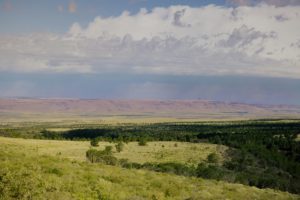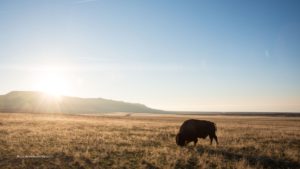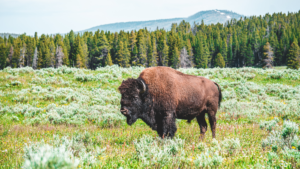For immediate release – October 12, 2011
| Contacts: | Erik Ryberg, Western Watersheds Project, (520) 622-3333 |
| Taylor McKinnon, Center for Biological Diversity, (928) 310-6713 |
TUCSON, Ariz.— A federal judge on Tuesday sided with the Center for Biological Diversity and Western Watersheds Project in a lawsuit challenging the U.S. Forest Service’s chronic refusal to monitor the health of threatened and endangered species in national forests throughout Arizona and New Mexico.
The 2010 suit alleged that the Forest Service failed to monitor populations of species, including the Mexican spotted owl and ridge-nosed rattlesnake, as required by a 2005 “biological opinion” authorizing implementation of forest plans for national forests in Arizona and New Mexico.
“The U.S. Forest Service has been shirking its legal obligation to monitor the Southwest’s most imperiled species and make sure its actions aren’t pushing them into extinction. Instead the agency’s been spending its money elsewhere and leaving these vulnerable species in the lurch,” said Taylor McKinnon of the Center. “This court ruling finally holds the Forest Service accountable for neglecting these species and putting them at the very bottom of its list. We hope the Mexican spotted owl and other imperiled species will now get the protection they need and deserve.”
The ruling provides endangered species with interim protection while the Forest Service and Fish and Wildlife Service reinitiate consultation on the regional forest plans. The ruling suspends livestock grazing on four grazing allotments that were determined likely to harm endangered rattlesnakes, imposes restrictions recommended by Fish and Wildlife on logging near Mexican spotted owl nests at the Upper Beaver Creek timber sale in northern Arizona, and may provide a basis for suspending other actions harming endangered species prior to completion of a new biological opinion.
“Arizona’s public lands are deceptively rich in animal life, and it is unfortunate that the Forest Service treats those animals with such disdain,” said Erik Ryberg with the Western Watersheds Project. “Western Watersheds Project is hopeful that this legal victory will cause the Forest Service to acknowledge the damage that their widespread livestock grazing programs inflict on animals that make these public lands their home.”
In June 2005, the U.S. Fish and Wildlife Service issued a biological opinion that gave the Forest Service, in accordance with the Endangered Species Act, permission to implement forest-management plans in all 11 national forests in Arizona and New Mexico. As a condition of that permission, the Forest Service agreed to monitor threatened and endangered species’ populations and their habitats.
But in October 2008 the Service issued a report admitting it had not done the monitoring. It also admitted that it might have exceeded its allowable quota of harm to some species, including the Mexican spotted owl. The Center warned the Forest Service of an impending lawsuit if it did not begin the required monitoring, which the agency has continued to refuse to do. After the Center filed suit, the Forest Service and Fish and Wildlife Service reinitiated consultation; today’s decision provides interim protections for endangered species until the reinitiated consultation is completed.
The lawsuit was argued by attorneys Marc Fink with the Center for Biological Diversity and Matt Kenna from Durango, Colorado.
####






